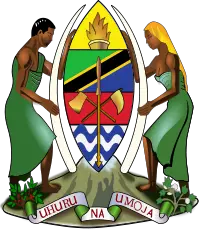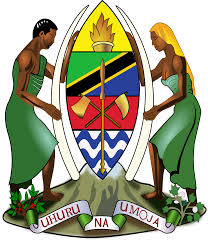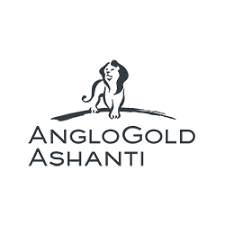Background
The Project ‘Food Systems Land Use and Restoration in Tanzania’s Forest Landscapes’ is a child project under the GEF Food Systems Land Use and Restoration (FOLUR) Impact Program. The 5-year project is implemented through the Ministry of Natural Resources and Tourism as the lead Executing Agency with the support of the World Wildlife Fund (WWF) as GEF Implementing Agency.
The key environmental problem to be addressed by the project is the degradation of Tanzania’s rich forest lands and wetlands and the related loss in forest health and biodiversity under the pressure of agricultural development with a focus on rice production which has detrimental effects on the delivery of ecosystem services and related livelihood and economic opportunities. In Tanzania rice production has more than tripled between 2004 and 2015, making Tanzania the second largest rice producer in South-Eastern Africa. The rice sector is currently a key point of attention of various Government and donor supported programs geared towards both intensification and extensification with a growing interest in export to supply adjacent African states. A key challenge is that production is small scale with current yields being among the lowest in the world (between 1.5 and 2 t/ha), inefficient supply chains, post-harvest handling, and poor transport networks posing additional challenges.
The project focuses primarily on two landscapes in Tanzania, both critical for rice cultivation: The Kilombero Valley on mainland Tanzania, and the North Unguja (Zanzibar) landscape. The project represents an integrated approach that combines aspects of sustainable food systems and deforestation-free supply chains with broader landscape-level planning, management, and restoration for the preservation of ecosystem services in these two landscapes which translates into three main pillars of work:
- The development of an Integrated Landscape Management approach for the target landscapes through a multi-stakeholder process in order to provide for a landscape management framework that gives space for rice production and other uses while securing space for the preservation and restoration of critical ecological systems;
- The development of sustainable and socially inclusive value/supply chains for the rice production sector including the development of supporting governance/policy frameworks, financial and market mechanisms, and incentives that will drive sustainable value chains; and
- The development and implementation of concrete landscape restoration and management activities in the target landscapes including the creation of enabling conditions for upscaling. The focus here will be on areas degraded by or providing key environmental services to the rice sector.
Job type: Full-time
TOR: Landscape Coordinator
WWF/GEF Tanzania Food Systems Land Use and Restoration Project
Reports to: District Executive Director, Mlimba District Council with a dotted line to the Project Coordinator
Location: Mlimba
Duration: 1 year, extendable to a maximum of 5 years
Major Function
The Landscape Coordinator will supervise staff in the LCU, coordinate with local project partners, and provide day-to-day management of the project. He/she will oversee project implementation within the landscape, as well as provide targeted technical support to the design and implementation of project activities under the various project components.
Key Responsibilities
- Project Management:
- Day-to-day management, monitoring, and evaluation of project activities and planned results within the landscape, as outlined in the Project Document and Annual Work Plan and Budget to achieve the project objective and targets in the Results Framework.
- Manage the workflow for the Landscape Advisory Committee (LAC), and in particular, develop the Annual Landscape Work Plan and Budget (AWPB) for each project year for approval by the Project Coordinator.
- Manage recruitment, procurement, and other expenditure in line with the approved AWPB.
- Lead planning and organization of reflection workshops to identify lessons learned and propose potential changes for adaptive management to ensure project results and indicator targets are reached.
- Provide oversight of the delivery of project activities through reporting, regular project team and partner meetings, and supervision missions.
- Be responsible for the organization of landscape-level workshops/meetings.
- Oversee the preparation and disbursement of sub-grants to local project partners.
- Represent the project at relevant landscape level and national forums and provide support for project supervisions and internal and external reviews/evaluations.
- Hold monthly virtual and/or physical meetings with the partners involved in the implementation of project activities within the landscape.
- Staff Management:
- Supervise the LCU staff including the Field Extension Officers and the Program Administrative Officer and any directly recruited staff or consultants.
- Technical Assistance:
- Technically lead and advise on the design and implementation of project activities at the landscape level.
- Prepare related TORs to recruit local consultants and for subcontracts to local project partners.
- Undertake regular field missions to monitor project implementation and to provide technical advice and support to the field teams and project partners.
- Gender and Safeguards:
- Ensuring landscape-level compliance with and implementation of the gender, environmental, and social safeguards provisions and actions as set out in the Environmental and Social Management Framework (ESMF), the Gender Action Plan, and the Stakeholder Engagement Plan (SEP).
- Ensuring gender responsive stakeholder engagement throughout the project life-cycle.
- Ensuring public disclosure of safeguards documents and reporting on gender and safeguards implementation and compliance to the PSC and WWF GEF Agency.
- Screening all field-level project activities to identify gender-specific aspects and social and environmental impacts.
- Contributing to the preparation of site-specific safeguards documents (site-specific ESMPs or Livelihood Restoration Plans [LRPs]) as needed.
- Ensuring the inclusion of gender and safeguards requirements in all project bidding documents and contracts and monitoring contractors’ compliance with such requirements.
- Conducting consultation meetings with local stakeholders as required, informing them and updating them on the latest project development activities.
- Carrying out regular site inspections.
- Reporting on safeguards implementation and compliance to the ESS Specialist and the Project Coordinator.
- Ensuring implementation of the Grievance Redress Mechanism (GRM) and dissemination of information regarding the GRM among local communities.
- Reporting:
- Prepare semi-annual Progress Reports and ensure timely delivery to the PCU.
- Oversee development of quarterly technical and financial reports and ensure timely delivery to the PCU.
- Ensure co-finance reporting on a yearly basis.
- Quality Assurance:
- Provide quality assurance for project activities, including in subgrants to local partners.
- Review reports and other products from consultants, staff, and subgrantees, and ensure quality.
- Ensure implementation in line with Government, GEF, and WWF standards and policies.
- Partnerships:
- Ensure smooth coordination and communication among all project partners and with the Program partners.
- Manage stakeholder engagement throughout the project duration.
- Coordinate with co-financed projects and liaise with project partners to ensure co-financing commitments are realized.
- Attract additional partners and co-financing.
- Represent the project as needed at various meetings and workshops.
Qualifications and Requirements
- At least 7 years of technical working experience in a discipline relevant to Sustainable Food Systems, Land Use and Restoration.
General Conditions
Check all: JOBS IN TANZANIA
Go to our Homepage To Get Relevant Information.



